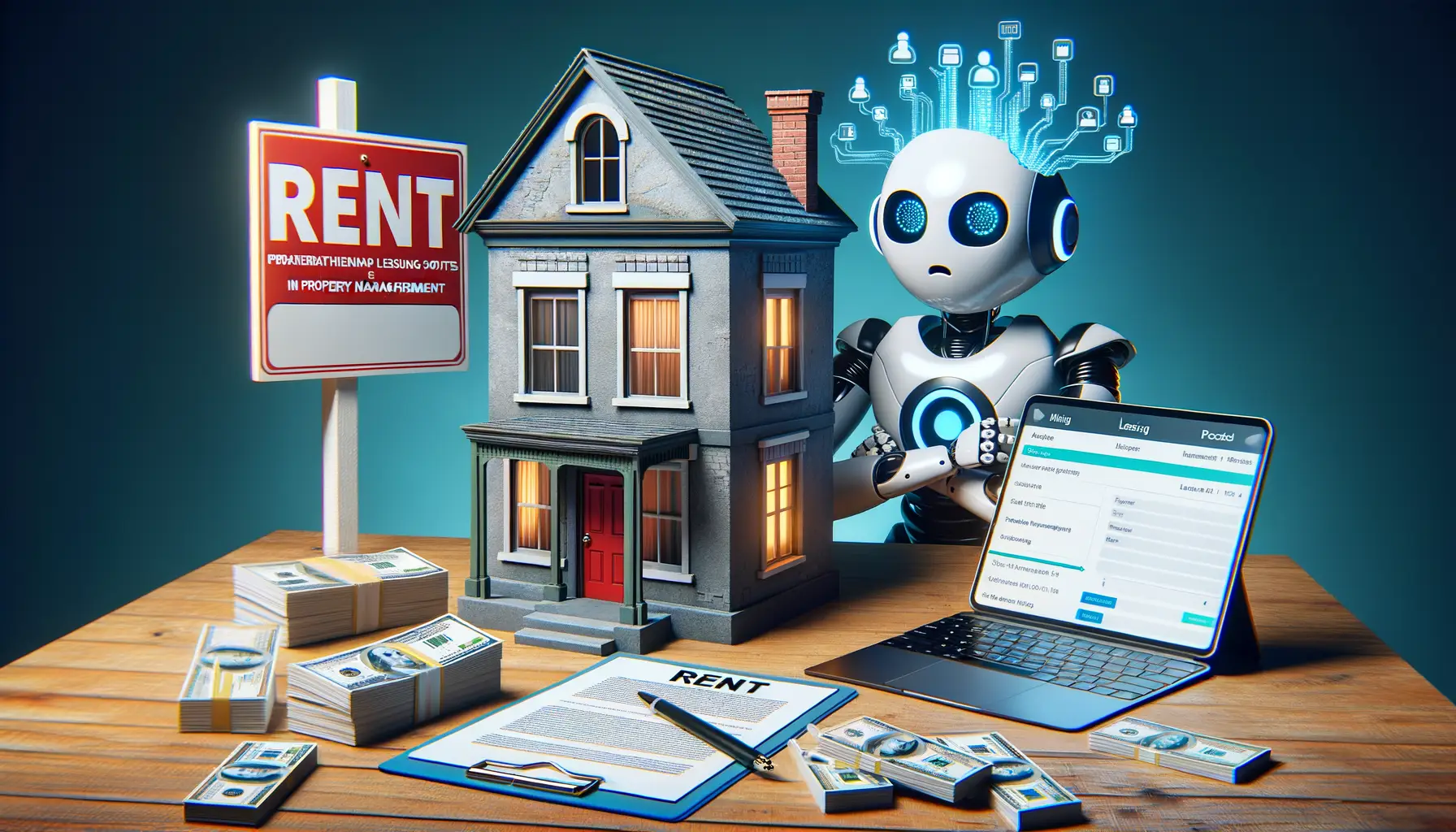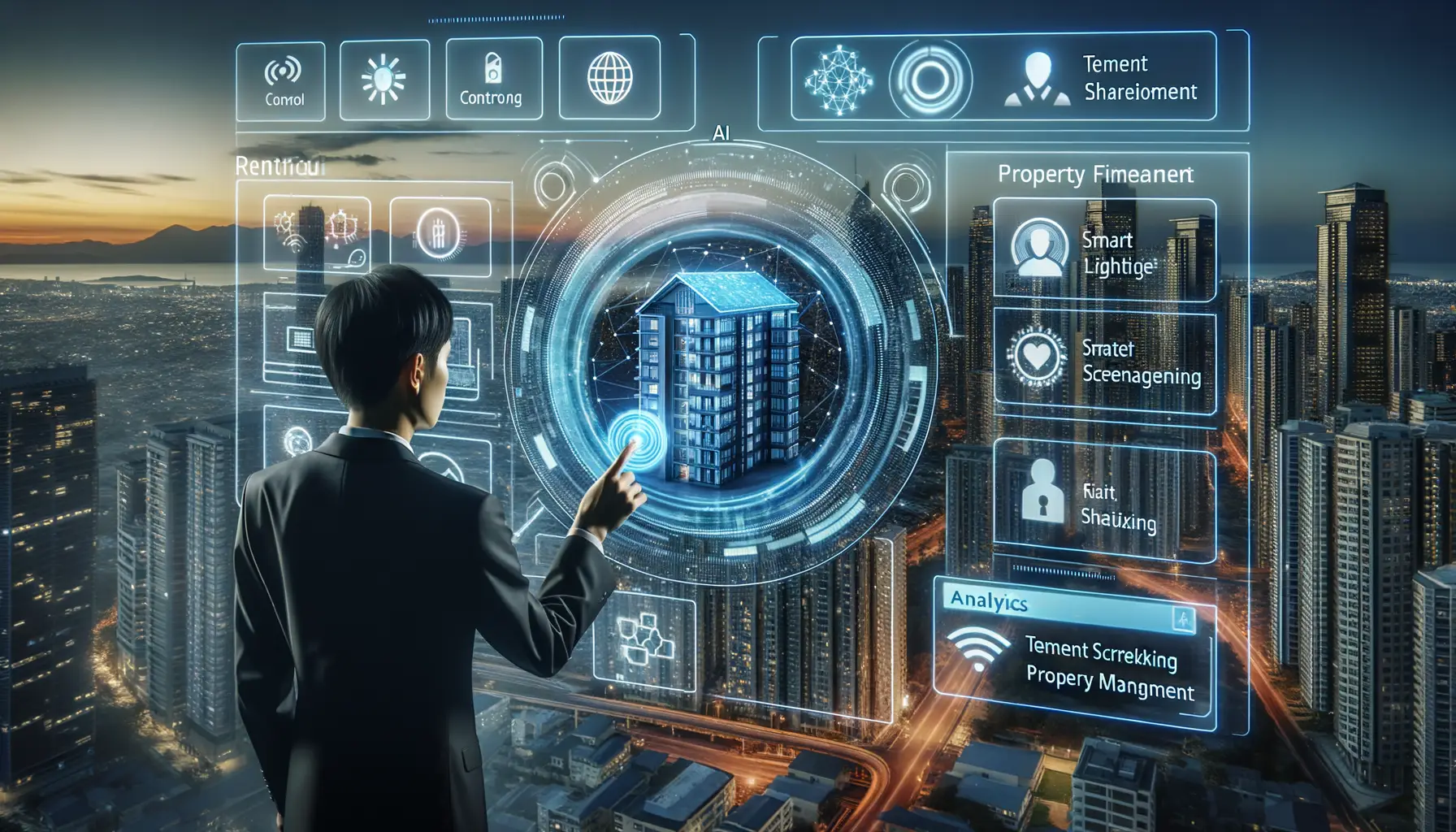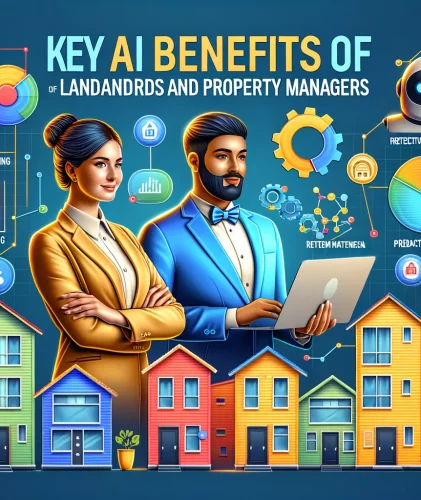Understanding the Role of AI in Rental Property Management
How AI is Reshaping Day-to-Day Property Management
Managing rental properties can feel like juggling a dozen balls at once—tenants, maintenance requests, late payments, and market trends all vying for attention. Enter Artificial Intelligence (AI), the game-changer that’s rewriting the rulebook. Imagine having a digital ally that not only keeps everything organized but actively works to make smarter decisions, faster than you ever could.
Take tenant screening, for example. Instead of sifting through mountains of applications and barely decipherable references, AI tools can analyze credit scores, payment histories, and even patterns in employment stability, handing you recommendations on-the-spot. It’s like having a sharp-eyed assistant who never sleeps.
The Silent Problem-Solver
AI isn’t just about efficiency—it’s your invisible lifeline when challenges arise. Picture this: a pipe bursts in a tenant’s apartment. Within moments, AI systems can ping relevant contractors, compare quotes, review past performance, and schedule repairs seamlessly. Talk about turning chaos into calm!
Often, it’s the small touches that make the biggest difference:
- Monitoring rental pricing in real-time to stay competitive.
- Sending automated reminders for overdue payments without sounding like a nag.
- Predicting maintenance needs before tenants even pick up the phone.
With AI, rental property management shifts from reactive firefighting to proactive planning—and let’s face it, who doesn’t want a crystal ball that actually works?
Key Benefits of AI Analytics for Landlords and Property Managers

Revolutionizing Decision-Making with AI Insights
Imagine having a crystal ball that helps you predict tenant behavior, market trends, or maintenance needs. That’s the power of AI analytics. Instead of sifting through mountains of spreadsheets or relying on instinct alone, landlords and property managers are now equipped with actionable intelligence to make razor-sharp decisions.
For instance, tenant screening becomes a breeze. AI tools can analyze rental payment histories, credit scores, and even online reviews to identify financially responsible tenants. It’s like having a detective on your side, minus the trench coat and magnifying glass.
And then there’s pricing. Ever struggled to pinpoint the sweet spot for rent in an ever-fluctuating housing market? AI swoops in with real-time data, letting you adjust rental rates to maximize profit without scaring off great tenants.
- Automated maintenance alerts ensure you’re never caught off-guard by a leaky roof.
- Custom reports break down complex performance metrics into bite-sized insights.
- Predictive analytics help prevent tenant churn by flagging patterns early.
The best part? AI doesn’t just save time—it gives you back hours to focus on growing your portfolio or improving tenant relationships. That’s a win-win!
Transforming Property Management into a Stress-Free Experience
Let’s face it—property management has its fair share of headaches. From juggling tenant complaints to balancing budgets, it can feel like spinning plates while walking a tightrope. That’s where AI-powered systems step in, turning chaos into calm.
For example, imagine using chatbots to address common tenant questions, like “When is rent due?” or “How do I reset the thermostat?” These virtual assistants work round the clock, giving tenants answers in seconds while freeing you up for more pressing matters.
What about occupancy rates? AI can pinpoint slow seasons before they start, enabling proactive marketing campaigns to fill units faster than ever. It’s like having a weather forecast but for vacancies—a game-changer for savvy landlords.
Plus, integrations with IoT devices amplify your control. Picture smart thermostats reporting energy inefficiencies or door sensors notifying you of unusual activity. It’s not just convenience; it’s peace of mind wrapped in cutting-edge tech.
With these tools in your arsenal, the days of feeling overwhelmed are officially behind you. Welcome to the future of effortless property management!
Challenges and Limitations of AI in Rental Property Management

When AI Meets Real-World Complexities
Imagine this: a high-tech AI system seamlessly managing rental properties, predicting tenant needs, and handling maintenance requests. Sounds like a dream, right? But let’s not sugarcoat it—AI isn’t flawless. One of its biggest hurdles? Navigating the messy, unpredictable human world.
Think about tenant behavior. An algorithm might flag a renter as high-risk due to late payments in the past, but what if they recently secured a stable job? AI often lacks the ability to interpret nuanced, real-life situations—a quality that human intuition excels at.
And then there’s cultural and emotional sensitivity. A chatbot might be great at scheduling viewings, but when it comes to handling tenant grievances or emotionally charged disputes, even the smartest AI can feel cold and impersonal.
The Data Dilemma: Garbage In, Garbage Out
AI thrives on data, but its performance is only as good as the quality of information fed into it. Poorly labeled documents, incomplete property records, or outdated market trends can lead to costly mistakes. Consider these common issues:
- Bias in algorithms: If training data skews towards certain demographics, you risk unintentionally discriminating against tenants.
- Privacy concerns: With sensitive tenant data in play, landlords must tread carefully to avoid breaches or misuses of information.
While AI can crunch numbers like a genius, it doesn’t yet know how to double-check for ethical minefields. It’s a partner, not a perfect oracle.
Best Practices for Implementing AI Analytics in Property Management

Start Small, Then Scale with Confidence
Jumping headfirst into the world of AI analytics can feel like trying to drink from a firehose. The secret? Start small. Before you integrate a full-fledged system across your entire property portfolio, begin with one or two features. For example, you could use AI to optimize rent pricing or predict tenant turnover patterns. By starting with focused goals, you’ll better understand how the technology interacts with real-world data—and you’ll avoid feeling like you’re assembling a puzzle without the picture on the box.
Another golden tip: make sure your data is king. AI thrives on high-quality, well-organized information. Got spreadsheets that look like they’ve been through a tornado? Clean them up first. Your future self will thank you.
Bonus tip: Partner with your chosen AI solution provider as if they were a co-pilot. Ask questions. Test their support team’s patience—because it matters! This is a long-term relationship, and you want someone who listens.
Engage Your Team for Seamless Adoption
Your team might hear “AI” and instantly picture robots replacing them. Let’s calm those fears. Communicate early—and clearly—that this tool is an assistant, not a replacement. Show them how it can take tedious tasks off their plates so they can focus on work that truly requires human intuition.
A simple approach? Provide hands-on training and encourage experimentation. Employees are more likely to embrace AI when they see its practical benefits. Imagine your leasing agent realizing they no longer have to sift through piles of applications manually because the system pre-screens applicants for them—life-changing, right?
And finally, involve your team in the decision-making process. Their input on functionality and workflows will ensure smoother implementation. After all, the people in the trenches often have the sharpest insights.
Future Trends in AI and Its Impact on Rental Property Management

Revolutionizing Tenant Interactions with AI
Imagine this: a potential tenant sends a message at midnight asking about the pet policy. Instead of waiting hours for a reply, an intelligent AI assistant responds within seconds—friendly, clear, and right to the point. This isn’t science fiction; it’s the future of how rental property management will operate. With advancements in Natural Language Processing (NLP), AI can now replicate personalized interactions that feel just as warm and human as a conversation with your best leasing agent.
Picture virtual agents that don’t just answer FAQs but also process applications, schedule tours, and even suggest properties suited to someone’s lifestyle based on their preferences. It’s like having the ultimate multitasking assistant, available 24/7. And guess what? They don’t need coffee breaks!
But it doesn’t stop there. AI-powered chatbots could soon integrate with augmented reality (AR) to guide tenants through virtual property tours right from their couch. The days of rigid office hours are slipping into the past—AI is making property management a dynamic, always-on experience.
Data-Driven Predictions Shaping the Market
AI isn’t just crunching numbers anymore; it’s predicting futures. Advanced machine learning algorithms analyze vast oceans of rental data to help landlords anticipate market trends before they happen. Here’s a quick hit list of how this can transform the game:
- Rental pricing optimization: Predict rent fluctuations based on demand surges or neighborhood developments.
- Tenant retention strategies: Flag behaviors that indicate when a tenant might not renew their lease, allowing preventive action.
- Maintenance forecasting: Pinpoint the exact time a property might need repair based on usage patterns.
Think of it as having a crystal ball, but instead of vague glimpses, you’re getting actionable insights. For example, landlords might discover that properties close to electric vehicle charging stations are outpacing others in demand. Or that energy-efficient appliances lead to higher tenant satisfaction scores. The result? Smarter investments and happier tenants.
This isn’t just a trend—it’s the new norm in an industry quietly shedding its traditional skin.

